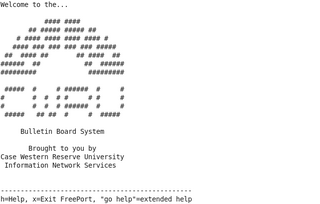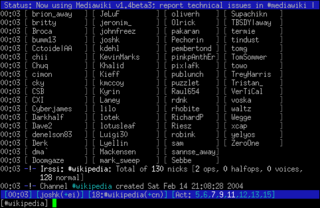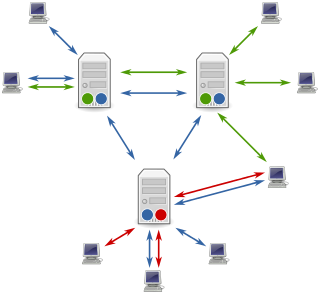Related Research Articles

In computing, a denial-of-service attack is a cyber-attack in which the perpetrator seeks to make a machine or network resource unavailable to its intended users by temporarily or indefinitely disrupting services of a host connected to a network. Denial of service is typically accomplished by flooding the targeted machine or resource with superfluous requests in an attempt to overload systems and prevent some or all legitimate requests from being fulfilled.

An Internet service provider (ISP) is an organization that provides a myriad of services for accessing, using, or participating in the Internet. Internet service providers can be organized in various forms, such as commercial, community-owned, non-profit, or otherwise privately owned.

A web hosting service is a type of Internet hosting service that hosts websites for clients, i.e. it offers the facilities required for them to create and maintain a site and makes it accessible on the World Wide Web. Companies providing web hosting services are sometimes called web hosts.

A free-net was originally a computer system or network that provided public access to digital resources and community information, including personal communications, through modem dialup via the public switched telephone network. The concept originated in the health sciences to provide online help for medical patients. With the development of the Internet free-net systems became the first to offer limited Internet access to the general public to support the non-profit community work. The Cleveland Free-Net (cleveland.freenet.edu), founded in 1986, was the pioneering community network of this kind in the world.
This page provides an index of articles thought to be Internet or Web related topics.
An online service provider (OSP) can, for example, be an Internet service provider, an email provider, a news provider (press), an entertainment provider, a search engine, an e-commerce site, an online banking site, a health site, an official government site, social media, a wiki, or a Usenet newsgroup. In its original more limited definition, it referred only to a commercial computer communication service in which paid members could dial via a computer modem the service's private computer network and access various services and information resources such as bulletin board systems, downloadable files and programs, news articles, chat rooms, and electronic mail services. The term "online service" was also used in references to these dial-up services. The traditional dial-up online service differed from the modern Internet service provider in that they provided a large degree of content that was only accessible by those who subscribed to the online service, while ISP mostly serves to provide access to the Internet and generally provides little if any exclusive content of its own. In the U.S., the Online Copyright Infringement Liability Limitation Act (OCILLA) portion of the U.S. Digital Millennium Copyright Act has expanded the legal definition of online service in two different ways for different portions of the law. It states in section 512(k)(1):
(A) As used in subsection (a), the term "service provider" means an entity offering the transmission, routing, or providing of connections for digital online communications, between or among points specified by a user, of material of the user’s choosing, without modification to the content of the material as sent or received.
(B) As used in this section, other than subsection (a), the term "service provider" means a provider of online services or network access, or the operator of facilities therefore, and includes an entity described in subparagraph (A).

MindVox was a famed early Internet service provider in New York City. A controversial sometime media darling — the service was referred to as "the Hells Angels of Cyberspace" — it was founded in 1991 by Bruce Fancher and Patrick Kroupa, two former members of the legendary Legion of Doom hacker group. The system was at least partially online by March 1992, and open to the public in November of that year.

In computing, a zombie is a computer connected to the Internet that has been compromised by a hacker via a computer virus, computer worm, or trojan horse program and can be used to perform malicious tasks under the remote direction of the hacker. Zombie computers often coordinate together in a botnet controlled by the hacker, and are used for activities such as spreading e-mail spam and launching distributed denial-of-service attacks against web servers. Most victims are unaware that their computers have become zombies. The concept is similar to the zombie of Haitian Voodoo folklore, which refers to a corpse resurrected by a sorcerer via magic and is enslaved to the sorcerer's commands, having no free will of its own. A coordinated DDoS attack by multiple botnet machines also resembles a "zombie horde attack", as depicted in fictional zombie films.

A shell account is a user account on a remote server, traditionally running under the Unix operating system, which gives access to a shell via a command-line interface protocol such as telnet, SSH, or over a modem using a terminal emulator.
Pharming is a cyberattack intended to redirect a website's traffic to another, fake site by installing a malicious program on the computer. Pharming can be conducted either by changing the hosts file on a victim's computer or by exploitation of a vulnerability in DNS server software. DNS servers are computers responsible for resolving Internet names into their real IP addresses. Compromised DNS servers are sometimes referred to as "poisoned". Pharming requires unprotected access to target a computer, such as altering a customer's home computer, rather than a corporate business server.
WorldWide Access, also known as WWA, was an Internet Service Provider based in Chicago, Illinois. WorldWide Access was the service name of the company, which was called Computing Engineers, Inc.

The World is an Internet service provider originally headquartered in Brookline, Massachusetts. It was the first commercial ISP in the world that provided a direct connection to the internet, with its first customer logging on in November 1989.

The Internet has a long history of turbulent relations, major maliciously designed disruptions, and other conflicts. This is a list of known and documented Internet, Usenet, virtual community and World Wide Web related conflicts, and of conflicts that touch on both offline and online worlds with possibly wider reaching implications.
The Russian Business Network is a multi-faceted cybercrime organization, specializing in and in some cases monopolizing personal identity theft for resale. It is the originator of MPack and an alleged operator of the now defunct Storm botnet.
DNS hijacking, DNS poisoning, or DNS redirection is the practice of subverting the resolution of Domain Name System (DNS) queries. This can be achieved by malware that overrides a computer's TCP/IP configuration to point at a rogue DNS server under the control of an attacker, or through modifying the behaviour of a trusted DNS server so that it does not comply with internet standards.

Usenet is a worldwide distributed discussion system available on computers. It was developed from the general-purpose Unix-to-Unix Copy (UUCP) dial-up network architecture. Tom Truscott and Jim Ellis conceived the idea in 1979, and it was established in 1980. Users read and post messages to one or more categories, known as newsgroups. Usenet resembles a bulletin board system (BBS) in many respects and is the precursor to Internet forums that became widely used. Discussions are threaded, as with web forums and BBSs, though posts are stored on the server sequentially.
The Pipeline was one of the earliest American Internet service providers. It was founded in December 1993 in New York City by the science and technology writer James Gleick and computer programmer Uday Ivatury, who had met at the Manhattan Bridge Club and shared an interest in online bridge. Both men believed that a graphical user interface would make the Internet more widely accessible than the command-line Unix commands that were then generally necessary.
Google Public DNS is a Domain Name System (DNS) service offered to Internet users worldwide by Google. It functions as a recursive name server. Google Public DNS was announced on 3 December 2009, in an effort described as "making the web faster and more secure". As of 2018, it is the largest public DNS service in the world, handling over a trillion queries per day. Google Public DNS is not related to Google Cloud DNS, which is a DNS hosting service.

Super Dimension Fortress is a non-profit public access UNIX shell provider on the Internet. It has been in continual operation since 1987 as a non-profit social club. The name is derived from the Japanese anime series The Super Dimension Fortress Macross; the original SDF server was a BBS for anime fans. From its BBS roots, which have been well documented as part of the BBS: The Documentary project, SDF has grown into a feature-rich provider serving members around the world.

The DDoS attack on Dyn was a series of distributed denial-of-service attacks on October 21, 2016, targeting systems operated by Domain Name System (DNS) provider Dyn. The attack caused major Internet platforms and services to be unavailable to large swathes of users in Europe and North America. The groups Anonymous and New World Hackers claimed responsibility for the attack, but scant evidence was provided.
References
- ↑ Declaration of Alexis Rosen in ALA v. Pataki
- ↑ PANIX ATTACK, Time Magazine
- ↑ Charalampos Patrikakis, Michalis Masikos, and Olga Zouraraki, Distributed Denial of Service Attacks
- ↑ Jennifer LeClaire, ICANN Scrutinized in Wake of Panix Attack, E-Commerce Times
- ↑ Steven Cherry, Panix Attack: How New York City's oldest Internet service provider was hijacked and rescued IEEE Spectrum, Feb 2005 .